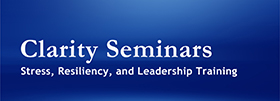Balance or burnout. A backlash is building among overworked IT staffers. Here’s why, and what to do about it
September 25, 2000
By Diane Rezendes Khirallah, Marianne Kolbasuk McGee, and Michelle Lodge
If Silicon Valley leads the world in technology innovation, it also leads the world in stress, according to Dr. Stephanie Brown, director of the Addictions Institute in Menlo Park, Calif.
Brown has noted a significant increase in stress-induced psychological problems in recent months among IT and other professionals working at Silicon Valley companies. The problems include infertility, sexual dysfunction, marital strife, drug abuse and alcoholism, and an addiction to work. And it’s not just the workers who are feeling the stress; child therapists are booked solid with cases of anxiety and depressive disorders.
For Brown, it’s the proverbial elephant in the living room: Everyone is busy hiding their stress from the outside world and acting like everything is just fine, thank you very much. “There’s a kind of depression in the area,” Brown says. “Silicon Valley culture is too dominant; it’s like an out-of-control alcoholic that everyone has to deal with. Everyone around it tries to look good but is dying inside.”
Sensibilities in Silicon Valley are different from those of the rest of the nation, in degree if not in kind, says David Gamow, whose Mountain View, Calif., company, Clarity Seminars, offers stress-reduction seminars to government and businesses. “Because of the presence of the tech boom, the whole Valley moves quickly,” Gamow says. “If everyone around you is doing 300 miles per hour, 150 seems slow.”
The Valley has a certain zeitgeist–and its name is “more.” More money, more impressive, more excessive, and, most of all, more speed. It colors everything: Median housing costs have topped the $500,000 mark, and Valley residents turn to the stock pages the way those in other areas turn to the baseball box scores. Everyone in Silicon Valley knows stories of fortunes made and others who have more money–and that knowledge brings about its own kind of stress.
The natural tendency is to pick up the pace and try to keep up. But when the gap between expectations and reality becomes too great, stress kicks in as a feeling of loss of control.
Consider what happened at a July conference at Santa Clara University on speed and stress faced by Silicon Valley workers in the medical field. Conference co-organizer Bev Olivier, associate dean of the Center for Professional Development at Santa Clara University, expected 200 physicians, nurses, psychologists, and social workers. Yet joining the clinicians were an estimated 80 people from outside the field, including human-resource and IT managers from such Silicon Valley giants as Cisco Systems and Hewlett-Packard, as well as from a host of dot-coms.
“In other jobs, like police work, there’s no huge carrot enticing you to do things that aren’t in your best interest,” Gamow says. But in IT, “the deadlines and time pressures cause people to push themselves. If you’re late, you’re already obsolete.”
The result is that employees wear down. “Companies wait until it’s really bad,” Gamow says. In one case, the signal was life-and-death. A legal firm in the Valley called in Gamow’s company to do stress-reduction work with its employees only after one of its executives in his early 40s died suddenly of a heart attack.
IT workers tend to like order, even in the midst of technological complexity. But humans are messy, Gamow says. “We’re all affected by circumstances that we can’t always control,” he says. “When people can identify what’s going on–what they can control and what they can’t–they can reduce their stress.”
Copyright 2000, Information Week

